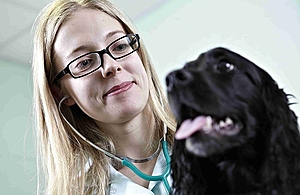Good afternoon, and welcome to today’s Downing Street Press Conference. I’m pleased to be joined today by Stephen Powis, the National Medical Director of NHS England.
Before I update you on the latest developments in the food supply chain, let me first give you an update on the latest data from the COBR coronavirus data file. Through the government’s ongoing monitoring and testing programme, as of today:
- 669,850 tests for coronavirus have now been carried out in the UK, including 29,058 tests carried out yesterday;
- 152,840 people have tested positive, that’s an increase of 4,463 cases since yesterday;
- 15,953 people are currently in hospital with the coronavirus in the UK, down from 16,411 on 25 April.
And sadly, of those hospitalised with the virus, 20,732 have now died. That is an increase of 413 fatalities since yesterday.
We express our deepest condolences to the families and friends of these victims.
At the beginning of the outbreak of this virus we saw significant problems in panic buying. That episode quickly subsided and food availability now is back to normal levels and has been for several weeks. All supermarkets have introduced social distancing measures to protect both their staff and their customers and it is essential that shoppers respect these measures.
The food supply chain has also seen a significant reduction in staff absence over recent weeks. As staff who had been self-isolating through suspected coronavirus symptoms have returned to work. So absence levels are down from a peak of typically 20% in food businesses three weeks ago to less than 10% at the end of last week and in some cases individual companies reporting absences as low as 6%.
We have put in place measures to support the clinically vulnerable. So far 500,000 food parcels have been delivered to the shielded group, that is those who cannot leave home at all due to a clinical condition that they have. In addition, the major supermarkets have agreed to prioritise delivery slots for those in this shielded group. So far over 300,000 such deliveries have been made, enabling people to shop normally and choose the goods that they want to buy.
We recognise that there are others who are not clinically vulnerable and therefore are not in that shielded group but who may also be in need of help. Perhaps through having a disability or another type of medical condition, or indeed, being unable to draw on family and neighbours to help them. We have been working with local authorities to ensure that those people can be allocated a volunteer shopper to help them get their food needs. Charities such as Age UK and others can now also make also direct referrals on the Good Samaritan App to locate volunteers for those in need.
Many supermarkets have taken steps to increase the number of delivery slots that they have. At the beginning of this virus outbreak there were typically 2.1 million delivery slots in the entire supermarket chain. That has now increased to 2.6 million, and over the next couple of weeks we anticipate that that will grow further to 2.9 million. So supermarkets have taken steps to increase their capacity but while this capacity has expanded, it will still not be enough to meet all of the demand that is out there.
Some supermarkets have already chosen to prioritise some vulnerable customers with a proportion of the delivers slots that they have and others have offered to work with us and also local authorities to help establish a referral system so that when somebody is in desperate need, a local authority is able to make a referral to make sure that they can get a priority slot.
As we look forward more generally towards the next stage in our battle against this virus, there are encouraging signs of progress, but before we consider it safe to adjust any of the current social distancing measures, we must be satisfied that we have met the five tests set out last week by the First Secretary.
Those tests mean that the NHS can continue to cope;
-
that the daily death rate falls sustainably and consistently;
-
that the rate of infection is decreasing; and operational challenges have been met;
-
and, most important of all, that there is no risk of a second peak.
For now, the most important thing we can all do to stop the spread of the coronavirus is to stay at home, to protect the NHS and save lives.
I want to pay tribute to all those who are working throughout the food supply chain from farmers, manufacturers and retailers. The response of this industry to ensure that we have the food that we need has been truly phenomenal.
Thank you.

